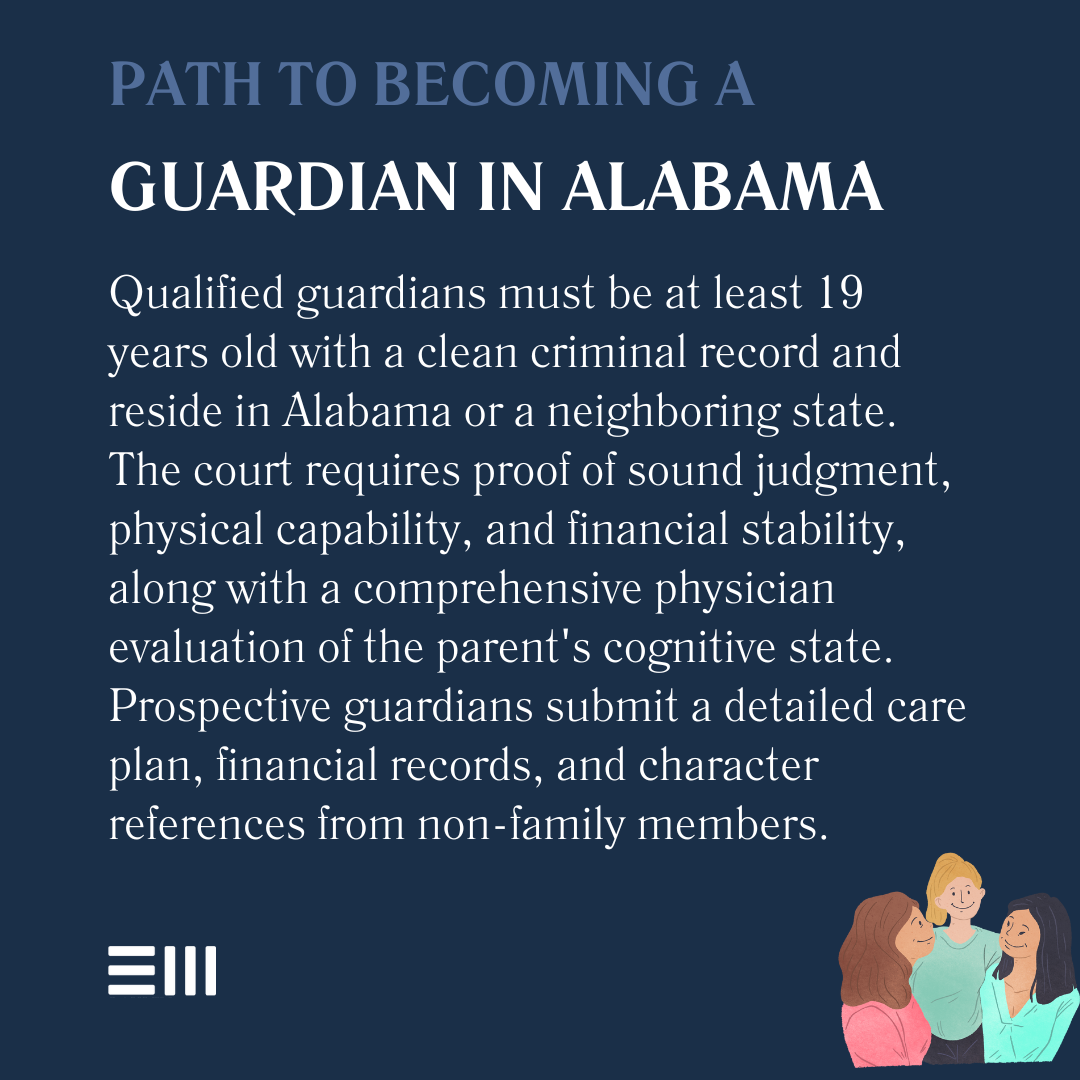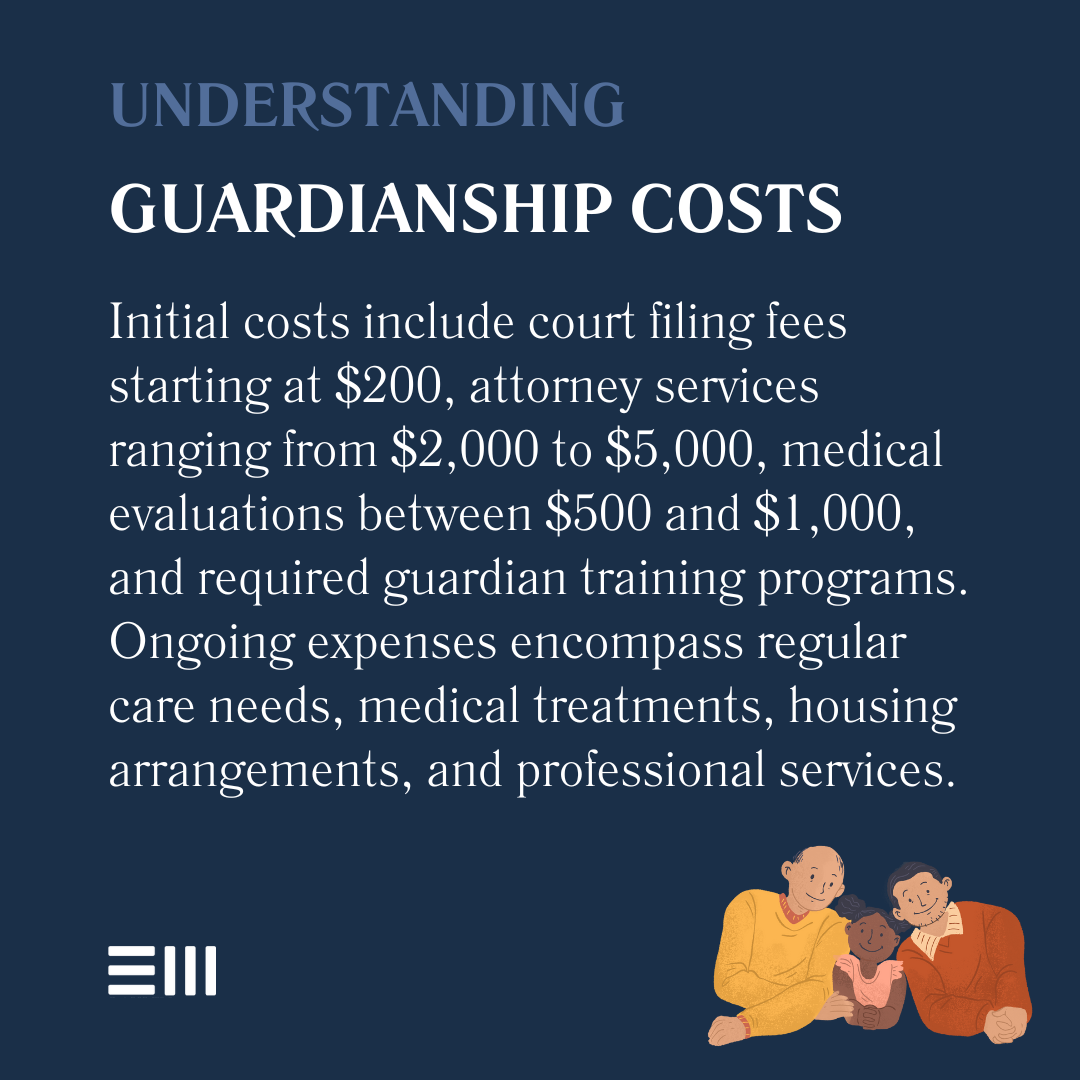Nearly 48 million Americans provide unpaid care to an adult family member, with that number expected to surge as our population ages.
Watching an aging parent struggle with daily decisions can feel like watching a familiar landscape slowly fade away. Adult children across Alabama find themselves facing difficult conversations around their parents' independence, safety, and future care.
These small signs often signal the need for a more structured support system, from misplaced car keys to forgotten medications to concerning financial decisions.
Guardianship provides a legal framework for families to protect their elderly parents while preserving their dignity—but understanding this process is essential before taking such a significant step.
Understanding Legal Guardianship in Alabama
The journey of caring for aging parents often leads to complex legal considerations. In Alabama, guardianship grants legal authority to make personal and healthcare decisions for an elderly parent who can no longer manage their affairs independently.
This legal arrangement differs from power of attorney because it requires court oversight and regular reporting to protect the ward's interests.
A legal guardian in Alabama assumes responsibility for:
- Making medical and healthcare decisions, including choosing healthcare providers and approving treatments;
- Determining living arrangements and care facilities, from in-home care to assisted living facilities;
- Managing daily care and personal affairs, including social activities and personal care;
- Ensuring the ward's safety and well-being through regular monitoring and assessment;
- Reporting regularly to the court about the ward's condition and care plans;
- Coordinating with healthcare providers and caregivers;
- Advocating for the ward's preferences and needs; and
- Making end-of-life care decisions when necessary.
The guardian's role focuses on personal care decisions, while a conservator handles financial matters. Sometimes, the same person can serve both roles if the court approves and demonstrates competency in both areas.
Requirements for Obtaining Guardianship
Before pursuing guardianship in Alabama, families should understand the specific criteria and documentation needed for a successful petition. The state's requirements aim to protect vulnerable adults while ensuring qualified individuals serve as guardians.
Required qualifications for guardianship include:
- Being at least 19 years old and a resident of Alabama or a neighboring state;
- Having no criminal record involving moral turpitude or financial crimes;
- Demonstrating sound judgment and ability to care for the ward;
- Being physically and mentally capable of serving as guardian;
- Having no conflicts of interest that could affect decision-making;
- Showing financial stability and responsibility;
- Being willing to complete any required guardian education programs; and
- Having the time and resources to fulfill guardian duties.
Essential documentation for filing includes:
- Medical evaluation from a licensed physician detailing the parent's cognitive capacity;
- Detailed care plan outlining proposed living arrangements and medical care;
- Financial statement of the proposed ward's assets and income;
- Character references for the proposed guardian from non-family members;
- Proof of relationship to the proposed ward;
- Background check results;
- Proposed guardian's financial statement; and
- List of all immediate family members and their contact information.
The court also considers additional factors when evaluating guardianship petitions:
- The proposed ward's preferences, if they can express them;
- Family dynamics and potential conflicts;
- Geographic proximity of the guardian to the ward;
- Support system and resources available; and
- Previous care relationship between guardian and ward.
Meeting these qualifications is just the first step in demonstrating your capability to serve as a guardian. The court will carefully evaluate each requirement to ensure the proposed guardian can effectively advocate for and protect their elderly parent.
Legal Rights and Responsibilities
Understanding the scope of guardianship helps families make informed decisions about this significant legal step.
Guardian responsibilities include:
- Making informed decisions about medical treatment;
- Ensuring appropriate living arrangements;
- Protecting against abuse or exploitation;
- Maintaining detailed records of all decisions;
- Filing annual reports with the court;
- Managing social and recreational activities;
- Coordinating with healthcare providers; and
- Advocating for the ward's preferences when possible.
The ward retains certain rights:
- To be treated with dignity and respect;
- To receive appropriate medical care;
- To have personal preferences considered;
- To maintain relationships with family and friends;
- To receive quality care in the least restrictive environment;
- To petition the court for modified or terminated guardianship;
- To manage certain personal decisions if capable; and
- To receive regular visits from the guardian.
By understanding these rights and responsibilities, guardians can better serve their role while ensuring their elderly parent maintains appropriate autonomy and dignity throughout the guardianship arrangement.
Financial Considerations and Planning
The financial aspects of guardianship require careful consideration and planning.
Common expenses include:
- Initial court filing fees ($200-500);
- Attorney fees ($2,000-5,000);
- Medical evaluation costs ($500-1,000);
- Guardian education programs ($100-300);
- Ongoing court reporting fees;
- Bond requirements if handling finances;
- Professional service fees for complex cases; and
- Travel expenses for court appearances.
Long-term financial planning should account for:
- Regular care expenses;
- Medical treatment costs;
- Housing and accommodation fees;
- Professional care services;
- Emergency funds;
- Insurance considerations; and
- Estate planning implications.
Careful financial planning and regular review of these expenses help ensure sustainable, long-term care for your loved one while maintaining the financial stability needed to fulfill guardianship duties effectively.
Frequently Asked Questions About Guardianship in Alabama
Understanding guardianship often raises numerous questions for families considering this option.
Here are answers to common concerns about the guardianship process in Alabama.
How Long Does the Guardianship Process Take?
The process typically takes 6-8 weeks but may extend longer depending on court schedules and case complexity. Emergency guardianships can be expedited in certain situations.
What Rights Does the Ward Retain?
Your parent maintains the right to be treated with dignity, receive appropriate medical care, and have their preferences considered in decisions. They also retain the right to petition for modified or terminated guardianship.
Can Guardianship Be Modified or Terminated?
Yes, the court can modify or end guardianship if circumstances change or the ward regains capacity. Regular reviews ensure the arrangement remains appropriate.
What Are the Alternatives to Guardianship?
Less restrictive options include power of attorney, advanced directives, or supported decision-making agreements. Each alternative offers different levels of protection and control.
How Much Does Guardianship Cost?
Initial costs typically range from $2,000 to $5,000, including court fees, attorney fees, and medical evaluations. Ongoing expenses vary based on the ward's needs and circumstances.
What Happens if Multiple Family Members Disagree About Guardianship?
The court considers all interested parties' input and determines the ward's best interest. Mediation may be recommended to resolve family disputes.
How Often Must Guardians Report to the Court?
Annual reports are typically required, detailing the ward's condition, care arrangements, and any significant decisions made during the year.
Preparing for the Guardianship Hearing
A successful guardianship hearing requires thorough preparation and documentation.
Key steps include:
- Gathering all required medical documentation;
- Preparing testimony about the need for guardianship;
- Organizing financial records and proposed care plans;
- Securing witnesses if necessary;
- Understanding court procedures and expectations;
- Reviewing potential questions from the judge; and
- Preparing responses to any objections.
Take Action to Protect Your Loved One
Seeing a parent struggle with declining capacity can be emotionally challenging, but you don't have to navigate this complex legal process alone.
Our experienced legal team understands the sensitivity and urgency of these situations and can guide you through each stage of the guardianship process.
Contact us today for a confidential consultation to discuss your family's needs and explore the best path forward for your elderly parent.


